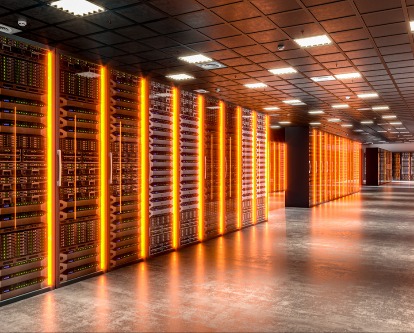Shon Hiatt is an associate professor of management and organization and an expert in agribusiness and global energy. He teaches Global Strategy in the MBA program. He is also faculty adviser to the Marshall Energy and Natural Resource and Adam Smith Society MBA clubs. We asked him for his thoughts on recent events as they impact global energy. These are his edited comments.

What does the Russian invasion of Ukraine mean for world energy prices?
"First, we need to understand that we are operating in an environment where there is more demand than supply of petroleum on the global market, and this has caused the current upward trajectory of oil prices prior to the Ukraine crisis.
"The invasion has created uncertainty surrounding both petroleum supply and demand. On the supply side, the question is whether the major oil pipelines that run through Ukraine become damaged and whether sanctions unintendedly impact shipping of Russian oil by sea. If these were to occur, then they will create a shock to global markets by reducing supply in an already undersupplied market. On the demand side, if Putin were to cut off gas supplies to Europe completely in retaliation, Europe may need to turn to petroleum distillates and gases (i.e., butane, pentane, propane, etc.) for its energy needs, which would further increase the global price of petroleum.
"If the above scenarios occur, Americans can expect to see increases at the gas pump and other distillates such as heating fuel."
What is the significance of Germany suspending certification for Nord Stream 2?
"Germany is dependent upon Russia for over 60% of its natural gas. Germany’s gas demand over the last two decades has increased due to shuttering of 1) coal and 2) nuclear plants—both of which provide baseload energy necessary to keep the lights on—as well as 3) increased adoption of unstable renewable sources such as wind and solar, which require natural gas generators (“peakers”) to keep the lights on when the wind ceases to blow and the clouds block the sun, as what occurred this past fall in Europe."
Does the West need to re-examine its energy policies in the face of this disruption?
"I believe so. The push to become carbon neutral quickly through volatile renewables such as wind and solar failed to factor in geopolitical risk. Europe has increased its reliance upon Russian gas to complement its wind and solar use, which makes it heavily dependent upon methane generation. Russia supplies Europe with about 40% of its gas. Europe, like the Biden administration, has taken an anti-petroleum stance with regards to production and exploration to decarbonize within their borders, focusing instead upon foreign sources for methane and petroleum. Moreover, 80% of the materials needed to make batteries, electric motors, wind generators and solar panels are processed in China, and the percentage is growing. China also controls a significant share of rare earth metals needed for these technologies.
"Like Russia, this gives China significant power over Western democracies and reduces the energy independence of Western countries as they seek to transition to lower carbon transportation and energy consumption."
What are we to understand about Norway’s Sovereign Wealth Fund and BP divesting of its Russian oil stakes?
"These entities are under tremendous pressure from their home government officials to freeze assets and divest as soon as possible of their Russian holdings. The problem is, who is going to purchase the assets from Norway and BP? With so many countries sanctioning Russian banks, there is less liquidity within Russia for a local entity to purchase those assets near the prior market value. Moreover, there is little appetite from investors outside of China in purchasing them. It’s likely that these assets will be purchased by a consortium of wealthy Russian individuals at bargain prices. If no one steps up to purchase them, it could lead to a near complete write-down of the asset value. For BP, that could mean as much as $25 billion in losses from its 19.75% Rosneft holding. Currently, BP relies on Rosneft for one-third of its petroleum production and $1 billion in dividends."
What does this massive disruption mean for clean energy efforts?
"I think the Glasgow 2021 goals to become carbon net neutral by 2050 will not be achieved. Idealism has hit geopolitical reality.
"Diversification of energy production and supplies that provide baseload energy along with a focus on energy independence are two critical factors. Countries cannot accomplish clean energy efforts through wind and solar alone.
"These technologies include small modular nuclear (being developed now in the U.S.) geothermal, hydropower and hydrogen (the latter could be a potential energy storage option). They also include methane exploration and production. The UK, for instance, has some of the largest gas shale reserves in Europe. This would have benefited the UK when the wind stopped blowing this past fall and electricity prices skyrocketed. Facing this reality, the EU Commission has recently decided to recategorize methane (natural gas) and nuclear as “green” because nuclear has zero carbon emissions and methane is the best complement for wind and solar without other types of available low-cost energy storage. Governments should be wary about pushing electric vehicle adoption mandates unless they can guarantee and secure key mining, processing and manufacturing (i.e., supply chains) outside of China and hopefully either within their borders or countries that do not present a geopolitical threat."




